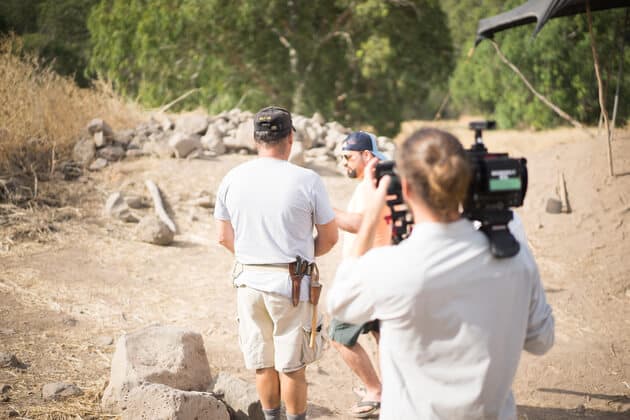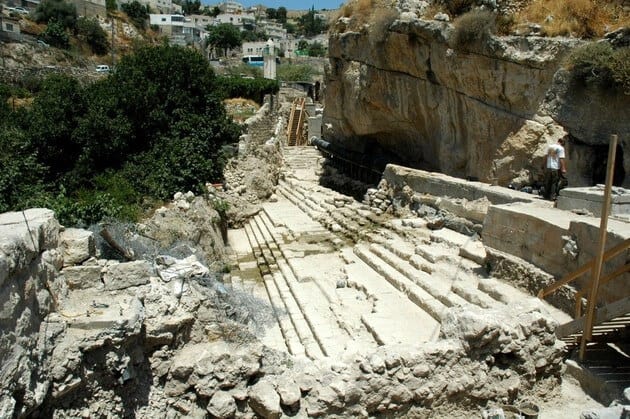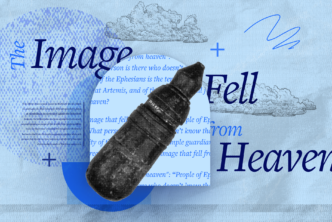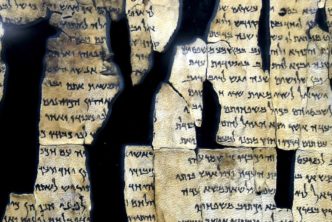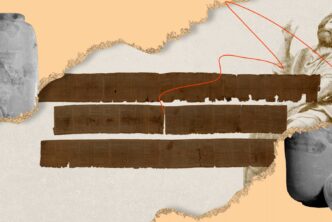Faithlife’s video team recently returned from Israel, having filmed two new Mobile Ed courses: Biblical Archaeology in the Field and Jesus and Archaeology. I sat down with Reuben Evans, Faithlife’s Director of Video, to learn how Mobile Ed is revolutionizing biblical education, the significance of archaeology for Bible study, and how seeing biblical sites can forever change the way you experience a passage.
Tyler: What brought you to Israel?
Reuben: A while back I was talking with our CEO Bob Pritchett about Mobile Ed and some of the projects the video team was working on. He brought up the fact that not everything works perfectly in a studio. Most subjects we shoot for a Mobile Ed course work fine that way. But what if you wanted to shoot a course on biblical archaeology? I mean, think about how different it is to sit in a classroom hearing about some finding, or reading about it in a book, versus actually going to the field and experiencing it.
So we connected with New Testament scholar Craig Evans and put our heads together. We said, “Hey, let’s go to Israel and shoot top-of-their-game archaeologists, who are excavating right now. Let’s talk to them, chronicle their digs, then combine it with Dr. Evans’ insights on how this impacts New Testament studies.”
We want to bring that experience back home to pastors, seminary students, and really anyone who’s interested in how archaeology affects our study of the Bible.
Tyler: What was it like to work with Dr. Evans?
Reuben: Amazing. Evans has been to Israel multiple times and that means we didn’t just get his incredible knowledge and scholarship, he helped us connect with different professors and archaeologists he’s worked with in the past. Honestly, I’m not aware of any other projects like Biblical Archaeology in the Field. It’s step-by-step, I mean, how to use trowels and read the stratigraphy. You’re seeing history right in front of you.
Tyler: How is learning about archaeology going to help the average pastor, teacher, or Bible student?
Reuben: Great question. Let me put it to you this way. Say you open up a commentary that focuses a lot on New Testament background. By its very nature, that resource is going to make a lot of claims that touch on biblical archaeology. How do you evaluate those claims?
And there are plenty of sensationalist claims out there. These stories are always popping up: someone’s discovered Noah’s ark, or the Ark of the Covenant. How do you respond when someone in your congregation comes to you citing an article like that? This course gives you insight into what archaeology actually is. So by getting a good solid look, you will be able to exercise discernment, working through background information that will help you evaluate those claims.
And most importantly, understanding archaeology and its findings can shed new light on biblical passages you study. Plus, there’s the apologetic benefit. Dr. Evans talks about this idea of “verisimilitude.” The idea is when you read in the Gospels about what the world of Jesus was like, then compare it to what we dig out of the ground, they look the same. They sound the same. These findings corroborate and add light to what we find in the Bible. It’s like bringing color to to a black and white picture.
Tyler: You also are producing a course specifically on Jesus and archaeology. How is it different from Biblical Archaeology in the Field?
Reuben: Jesus and Archaeology basically provides the whole picture of how biblical archaeology benefits New Testament studies. The first course, Biblical Archaeology in the Field, gives you the background of how things come out of the ground, the process of studying and evaluating those findings, and other basic issues in biblical archaeology. It gives you a solid foundation for understanding background material. Jesus and Archaeology is all about building on that foundation by connecting biblical archaeology to Jesus. This is where Dr. Evans was so important. He came with us for two weeks, traveling with us from the West Bank, to Galilee, and into Jerusalem. Along the way, he explained the significance of particular finds to the life and ministry of Jesus.
Tyler: Did any biblical story become particularly vivid for you when you visited these sites?
Reuben: Yeah, actually. We were traveling through what’s called Hezekiah’s Tunnel, from the time of the Old Testament king. There was water up to our thighs. It was tight—incredibly claustrophobic. One of the guys on our crew had to excuse himself, actually. He just couldn’t stand the tight space.
But at one point there’s this carving on the wall where these two tunnels converge. Apparently there were two teams building the tunnel, and as they met in the middle, someone carved into the wall. Then, when you leave the tunnel, you come to a little pool. The interesting thing is, in the past, people thought this was the Pool of Siloam, from the story in John 9.
But a few years ago some contractors were excavating for a pipe line, and they uncovered a few steps a bit away from where that small pool was. Then they discovered a few more, and a few more, until they uncovered all these steps leading down to this massive pool. And that’s when they discovered that, no, this is the real Pool of Siloam.
This pool dwarfed the other one. It just gave so much more color to that story, to imagine Jesus surrounded by all these sick people in this massive place, everyone lining those steps.
So we left Hezekiah’s tunnel, moved past the pool that they thought was the Pool of Siloam, and go out and see the real Pool of Siloam. And the crazy thing is, we actually bumped into the archaeologist who excavated the pool and were able to talk to him about that experience!
That pretty much sums this project up for me. In just a few steps we went from experiencing something from the Old Testament, to this incredible find that impacts New Testament studies—and then we actually got to talk to the guy who dug it up! You don’t get that experience from just doing your seminary homework. That’s why we went to Israel. We wanted to share that experience with Christians everywhere.
***
Order AR101 Archaeology in Action: Biblical Archaeology in the Field and AR151 Archaeology in Action: Jesus and Archaeology now.

